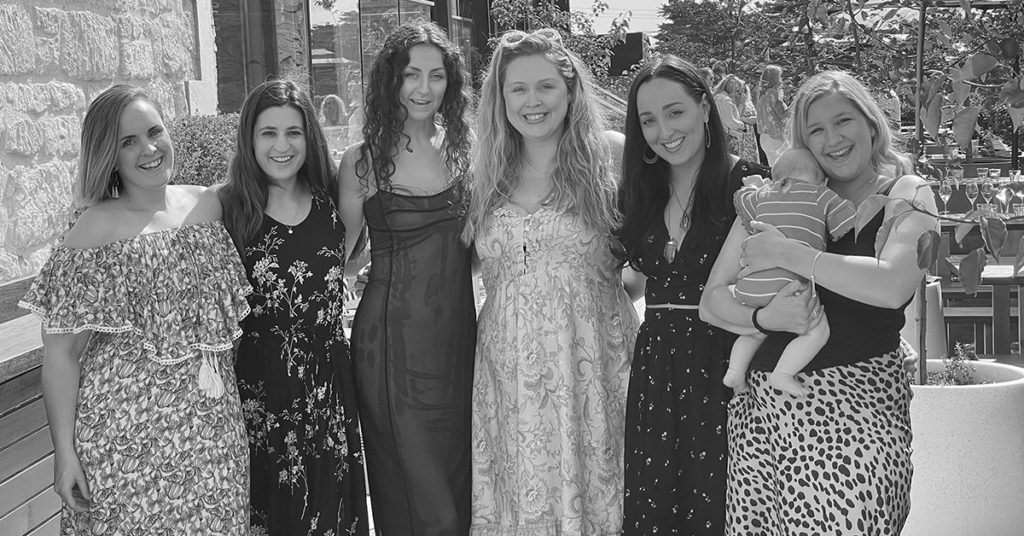When we think about branding, our mind often goes to a pretty business logo and signage, along with the overall aesthetic of a business. While this does make up a part of your brand, in essence, a brand is so much more.
There are so many things to consider when developing a brand strategy. Often overlooked, your employees are an extension of your brand and represent your business at every stage, so it is important that you hire the right staff as your people are a part of your brand.
Wait, so branding isn’t just a pretty logo?!
We’re glad you mentioned it! In one of our recent blogs, our Social Media Manager Tayler Rossetti defines branding as “how you are perceived and known by the public. Branding is expressed through the actions, personality and behaviour of the brand.” Your brand is so much more than what your logo looks like, or how many followers you have on Instagram (although, these should be part of your overall strategy).
Branding has many elements that contribute to how your company is perceived – brand identity, brand purpose and brand consistency are all part of your brand. In saying this, people are also very important in the make-up of your brand.
Picture this: you run your own company, where people pay you and your staff to come and help them tidy up their space by making it look aesthetically pleasing and clutter free. A new client asks for your help,” sure!” you say without a second thought while setting up a meeting for them during the week. When they arrive at your office to meet with their dedicated organisational guru, they are greeted by an employee who is dressed in old, shabby tracksuit pants with messy, unwashed hair, and a cluttered desk covered in food crumbs and stains. While you know that this particular organisational guru has gone through a rough patch and is struggling with work, your customer doesn’t have this context and just sees an unprofessional-looking staff member, representing your brand.
While this is an extreme example, it’s not uncommon for situations like this to happen. Your people are part of your brand – they represent your business just as your logo, website and signage do.
To learn more about business branding, check out our blog “Baffled by Branding, Brand Strategy & Brand Identity? Let us Break it Down For You!” and “Why Brand Consistency is Key”
Are you sure you’re not mixing up brand and reputation?
Great question! While reading this blog, you might think brand and reputation are the same things, but there are key differences between the two of them.
Reputation 911 describes your brand as the way you present yourself to the world, whether you are representing yourself or your company. It also demonstrates how you position yourself in the market and how you want the world to see you. On the other hand, your reputation is described as how others collectively perceive you. You can control your brand, but your reputation is decided by the public’s opinion – it has nothing to do with how you see yourself and everything to do with how others see you.
How your employees act might damage your company’s reputation, as Uber in the United States found in 2018, after sexual harassment allegations from an ex-Uber employee came to light, a domino effect started that lead to 56 assault allegations being brought to light and resulted in a $1.9 million settlement. The damage done by Uber’s people caused significant reputational damage and is one example of how your people can impact your brand.
It’s not just extremes like this though. In today’s day and age, employee’s social media habits can have the most damaging effect on brands. Businesses must implement a social media policy that all employees must adhere to. It’s not enough to simply ‘assume’ that staff members will know what they are doing is wrong, and in serious cases when it comes to dismissal, not having a policy in place means that you don’t have a leg to stand on.
You can’t teach passion!
Because your people are a part of your brand, it’s important you hire the right staff for your business. While it’s tempting to welcome a new member of staff who is highly skilled and doesn’t require as much training as another person might, if they aren’t going to fit in with how you’ve positioned your brand, it might be a risk to think twice about. We’ve talked a lot about how they represent your brand, but hiring the right people is also important for your company culture. Having people who share similar interests and workplace values as you do can make your workplace more enjoyable and can elevate your brand. They’re also (most likely!) people that you would want to surround yourself within the office every day.
Remember – you can always teach people new skill sets but you can’t teach them to be passionate about something.
What if they’re not my staff?
Did someone say influencers?! The Influencer Marketing Hub says that 59% of brands have a standalone budget for content marketing, and 75% of them intend to dedicate a budget to influencer marketing in 2021.
We know you might be thinking ‘influencers aren’t technically my staff’ and you’re right – they’re not staff members on a salary – but they are still part of your brand. When looking to use influencers as part of your brand strategy, be very careful who you choose to partner with. As influencers aren’t working for you, they don’t have any obligation to follow your business rules and values – they simply promote your brand to their (typically large) follower base in exchange for a one-off fee or products from your business.
You shouldn’t engage with an influencer whose values don’t align with your business. If your brand values include equality, for example, you would want to ensure that any influencer or ambassador you partner with reflects diversity.
An extreme example of a sponsorship that backfired was Lance Armstrong and Nike in 2012. Being an elite athlete, Nike paid Armstrong to represent their brand and promote their products. Ironically, in 2001 he even took part in an ad campaign where he mocked people using performance-enhancing drugs and misled Nike for over a decade.
While there is no hard and fast rule about how you should hire people, it is important to keep in mind that your people are very much a part of your brand – the same when choosing to partner with influencers. They make up who your company is and are always representing your business, so they need to be the right fit.
If you’re on the verge of a branding breakdown, or just want a branding brainstorm, we’ve got you! Get in touch with us today.


1 thought on “Why Your People are a Part of Your Brand”